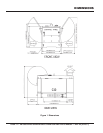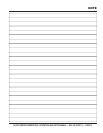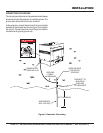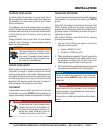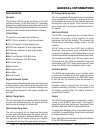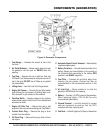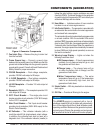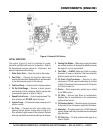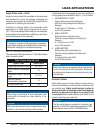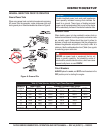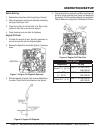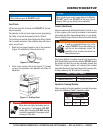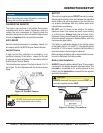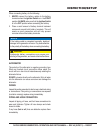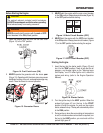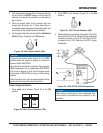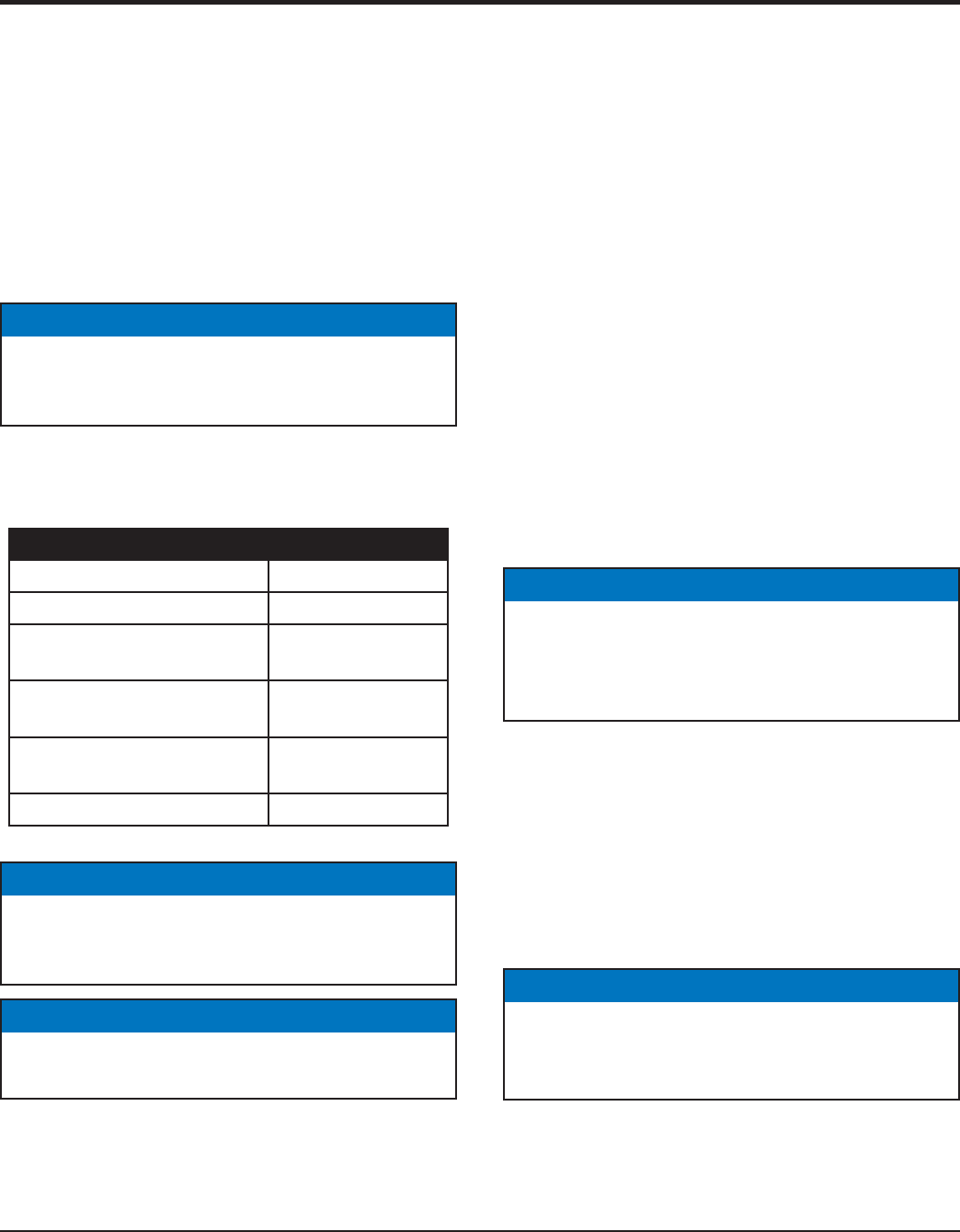
PAGE 22 — DA7000 SERIES GENERATORS• OPERATION AND PARTS MANUAL — REV. #5 (01/20/11)
Single Phase Load — 60 Hz
Always be sure to check the nameplate on the generators
and equipment to insure the wattage, amperage and
frequency requirements are satisfactorily supplied by the
generators for operating the equipment.
Generally, the wattage listed on the nameplate of the
equipment is its rated output. Equipment may require
130—150% more wattage than the rating on the nameplate,
as the wattage is infl uenced by the effi ciency, power factor
and starting system of the equipment.
WATTS = VOLTAGE x AMPERAGE
The power factor of this generators is 1.0 See Table 3 below
when connecting loads.
NOTICE
If wattage is not given on the equipment's name plate,
approximate wattage may be determined by multiplying
nameplate voltage by the nameplate amperage
Table 3. Power Factor By Load
Type Of Load Power Factor
Single-phase induction motors 0.4 - 0.75
Electric heaters, incandescent
lamps
1.0
Fluorescent lamps, mercury
lamps
0.4 - 0.9
Electronic devices,
communication equipment
1.0
Common power tools 0.8
NOTICE
When using a combination of dual receptacles, total
load should not exceed the rated capacity of the
generator.
NOTICE
When connecting power tools or equipment pay close
attention to the required starting current capacity.
LOAD APPLICATIONS
To determine the running wattage for your load, multiply the
running wattage as indicated by steps 1, 2, and 3 below:
1. INCANDESCENT LOADS
Lights, heaters and similar appliances.
total the running wattage and multiply by 1.
Example:
29 light bulbs @ 100W each = 2.9 kW
use a 3 kW generator.
2. SMALL MOTORS
Drills and other small power tools.
Total the running wattage and multiply by 2.
Example:
A 1 inch drill runs at 1 kW
use a 2 kW generator
3. LARGE MOTORS
Submersible pumps, table saws etc.
Total the running wattage and multiply by 3.
Example:
A conveyor belt runs at 8 kW
use a 24 kW generator.
Extension Cables
When electric power is to be provided to various tools or
loads at some distance from the generator, extension cords
are normally used. Cables should be sized to allow for
distance in length and amperage so that the voltage drop
between the generators and point of use (load) is held
to a minimum. Use the cable selection chart (Table 4) as a
guide for selecting proper cable size.
NOTICE
Motors and motor-driven equipment draw much greater
current for starting than during operation. Always use
an adequate size extension cable which can carry the
required load.
NOTICE
The idle control device is operated at a minimum load
capacity of 100W. If the load capacity is less than 100W,
place the idle control switch in the OFF position.



